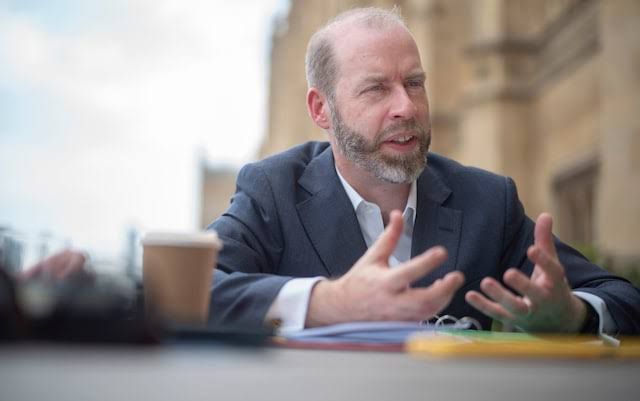Business Secretary Jonathan Reynolds has warned Britain not to become too dependent on foreign labour due to a defeatist approach to getting young people into skilled jobs.
He criticised what he called the casual attitude taken by previous governments in allowing sectors like healthcare, construction, and manufacturing to rely heavily on imported workers, leaving the UK workforce with tremendous skills gaps and vulnerable to global economic shocks.
His intervention comes ahead of Labour’s release on Monday of a long-term industrial strategy designed to reduce Britain’s dependence on foreign workers by investing in its talent pool. The plan includes a 10-year blueprint to train thousands of school leavers for high-skilled roles, particularly in defence, engineering, and manufacturing.
“We’ve got to stop assuming we can’t train people or that we don’t have the capacity,” said Reynolds. “That mindset is too defeatist. We can not have a strong, modern economy unless we’re building the skills base to support it.”
The push for a new industrial strategy follows stark findings from Oxford University’s Migration Observatory, which show that foreign workers now make up nearly 20% of the UK workforce, up from 12% a decade ago. At the same time, nearly one in seven young Britons aged 16 to 24 are not in employment, education, or training (Neet), a figure Reynolds called appalling.
“The country has failed this generation,” he said. “There’s not just an economic case to act. There’s a moral one too. It’s a tragedy when young people don’t see a future in sectors that desperately need them.”
Reynolds said Labour’s plan will establish a new wave of technical colleges and fund cutting-edge courses, giving school leavers clearer routes into well-paid, future-proof careers. The strategy, he stressed, would mark a shift away from laissez-faire economics toward a more hands-on government role in industrial planning.
Jonathan Reynolds backs proposals for £5 billion in welfare reforms
While acknowledging that international talent remains important, Reynolds argued that high net migration doesn’t have public consent and should not be the default solution to workforce shortages.
“We have to be pro-talent, but also honest. Migration alone can not be the only way we meet our skills needs,” he said. “We’re vulnerable when the entire world is chasing the same expertise in areas like engineering and defence. That’s why we need to grow our pipeline.”
He backed proposals for £5 billion in welfare reforms, including cuts to benefits, despite facing pushback from within Labour. Reynolds insisted that young people who can work should be in jobs, training, or education.
“No young person should be left behind unless they have a significant disability or are genuinely unable to work,” he said. “There are brilliant opportunities in creative industries, energy, services, and advanced manufacturing. I want my kids to be able to take those paths, and we need to make sure others can too.”



